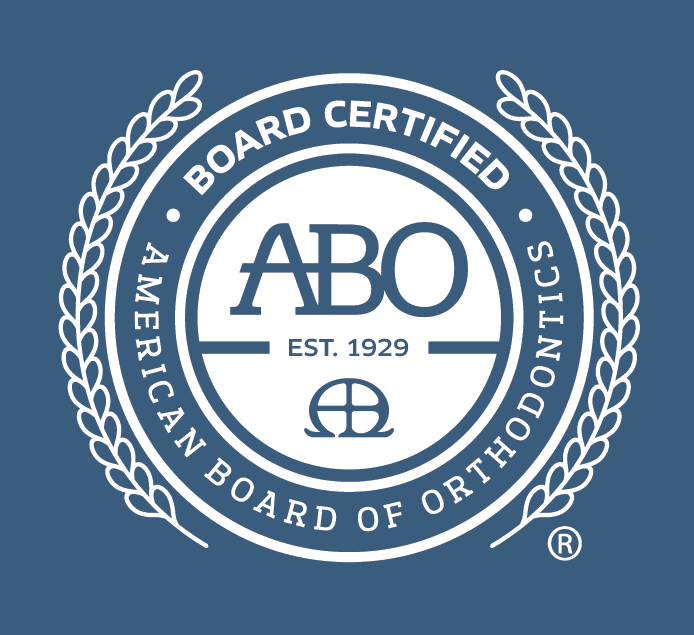WHEN SHOULD MY CHILD FIRST VISIT THE DENTIST?
We typically recommend that you bring your child in for a visit as soon as their baby teeth appear. This helps prevent the formation of cavities, and also gives us a chance to talk with you about how you can care for your child’s teeth.
The most important part of the visit is getting to know and becoming comfortable with a doctor and staff. A pleasant, comfortable first visit builds trust and helps put the child at ease during future dental visits. If possible, allow the child to sit in a parent’s lap in the exam room. Children should be encouraged to discuss any fears or anxiety they feel.
We will assess your child’s oral health and hygiene in a way that’s relaxed and comfortable, keeping your child fully at ease. The oral exam begins with a quick assessment of the teeth, checking them for any cavities while also assessing the gums, tongue, and other soft tissues, making sure everything is how it should be.
Regular trips to the dentist allow us to keep an eye on the teeth, gums, and jaw, ensuring healthy development. If we identify any abnormalities, we can recommend early intervention to prevent bigger problems later on. Early trips to the dentist help keep your child cavity-free from an early age, and also help you and your child develop healthy habits for oral care.
TEETHING
Normally the first tooth erupts between ages 6 to 12 months. Gums are sore, tender and sometimes irritable until the age of 3. Rubbing sore gums gently with a clean finger, the back of a cold spoon or a cold, wet cloth helps soothe the gums. Teething rings work well, but avoid teething biscuits—they contain sugar that is not good for baby teeth.
A bottle containing anything other than water and left in an infant’s mouth while sleeping can cause decay. This happens because sugar in the liquid mixes with bacteria in dental plaque, forming acids that attack the tooth enamel. Each time a child drinks liquids containing sugar, acids attack the teeth for about 20 minutes. When awake, saliva carries away the liquid. During sleep, the saliva flow significantly decreases and liquids pool around the child’s teeth for long periods, covering the teeth in acids.
INFANT’S NEW TEETH
The primary, or “baby,” teeth play a crucial role in dental development. Without them, a child cannot chew food properly and has difficulty speaking clearly. Primary teeth are vital to development of the jaws and for guiding the permanent (adult) teeth into place when they replace the primary teeth around age 6.
Since primary teeth guide the permanent teeth into place, infants with missing primary teeth or infants who prematurely lose primary teeth may require a space maintainer, a device used to hold the natural space open. Without a maintainer, the teeth can tilt toward the empty space and cause permanent teeth to come in crooked. Missing teeth should always be mentioned to your family dentist. The way your child cares for his/her primary teeth plays a critical role in how he/she treats the permanent teeth. Children and adults are equally susceptible to plaque and gum problems—hence, the need for regular care and dental check-ups.
Why are Primary (Baby) Teeth Important?
Primary teeth are important for several reasons. Foremost, good teeth allow a child to eat and maintain good nutrition. Healthy teeth allow for clear pronunciation and speech habits. The self-image that healthy teeth give a child is immeasurable. Primary teeth also guide eruption of the permanent teeth.
Good Diet & Healthy Teeth
The teeth, bones and soft tissue of the mouth require a healthy, well-balanced diet. A variety of foods from the five food groups helps minimize (and avoid) cavities and other dental problems. Most snacks that children eat cause cavities, so children should only receive healthy foods like vegetables, low-fat yogurt and cheeses, which promote strong teeth.
Infant Tooth Eruption
A child’s teeth actually start forming before birth. As early as 4 months of age, the primary or “baby” teeth push through the gums—the lower central incisors are first, then the upper central incisors. The remainder of the 20 primary teeth typically erupt by age 3, but the place and order varies.
Permanent teeth begin eruption around age 6, starting with the first molars and lower central incisors. This process continues until around age 21. Adults have 28 secondary (permanent) teeth—32 including the third molars (wisdom teeth).
Preventing Baby Bottle Tooth Decay
Tooth decay in infants can be minimized or totally prevented by not allowing sleeping infants to breast or bottle-feed. Infants that need a bottle to comfortably fall asleep should be given a water-filled bottle or a pacifier. Our office is dedicated to fighting baby bottle tooth decay. Let us know if you notice any signs of decay or anything unusual in your child’s mouth.
TEETH CLEANING
Routine dental cleanings are important to preserve your child’s smile and prevent cavities. We use special polishing pastes that work better than standard toothpaste, and we clean up the dental enamel using a special polishing machine. Your child will have the opportunity to pick flavors they enjoy for all of their dental cleanings.
PREVENTION
Helping parents and children establish sound eating and oral care habits reduces the chances of later tooth decay. In addition to providing check ups and dental cleanings, our team is also able to apply dental sealants and topical fluoride to young teeth, advise parents on thumb- sucking/pacifier/smoking cessation, and provide good demonstrations of brushing and flossing.
INTERVENTION
In some cases, the dentist may discuss the possibility of early oral treatments with parents. In the case of oral injury, malocclusion (bad bite), or bruxism (grinding), space maintainers may be fitted, a nighttime mouth guard may be recommended, or a consult with our orthodontist.
Dental Fillings & Sealants
While we aim to help our young patients prevent cavities, sometimes cavities simply cannot be avoided. In these situations, your child’s dentist may recommend the use of dental fillings or sealants. Sealants are used to prevent further decay where cavities have been found, especially on the permanent molars. Dental fillings may be required when there is significant decay, or when the cavity has caused other major problems with the tooth.
Dental Crowns
When the cavity is so large and has involved multiple surfaces of the tooth, it cannot optimally be repaired by a dental filling. In this case, preformed dental crowns are used to save the tooth.
Pulpotomy or Baby Root Canal
When the tooth decay is so large that it extends into the nerve of the tooth, we need to do a pulpotomy or a baby root canal. We only remove the top portion of the nerve to preserve and save the tooth. We will need to use a dental crown after this procedure to restore the tooth.
If you have questions or concerns about your child’s needs, please contact our office.
Some of the Dental Treatment we provide for our kids include:
- Exams and Cleanings
- Dental Crowns for Children
- Dental Emergency
- Digital X-rays
- Aesthetic Dental Services
- Early Orthodontic Treatment
- Fluoride Treatment
- Tooth Extraction
Education is important to us a dental professionals and we like to educate our parents on the importance of their child’s oral health. Some of the topics we may cover include:
- Baby Bottle Tooth Decay
- Care for Your Child’s Teeth
- Does Your Child Grind His or Her Teeth at Night?
- Eruption of Your Child’s Teeth
- Good Diet
- How Often Should Children Have Dental Checkups?
- How to Prevent Cavities
- Mouth Guards
- Pacifiers and Thumb Sucking
- Sealing Out Tooth Decay
- Sippy Cups
- Why Primary Teeth Are Important
BOOK APPOINTMENT
Free Consultation For Braces and Orthodontics
Booking an appointment at Garden Grove Dental & Orthodontics is simple. Click the link to fill out our online contact form. You can also call us directly to find a time that works best for you. We look forward to seeing you and your family and discovering how we can best serve your dental needs.
12630 Brookhurst St Suite B
Garden Grove, CA 92840


(714) 530-4920
Mon - Fri: 8am - 5:30pm
Sat - Sun: Closed


